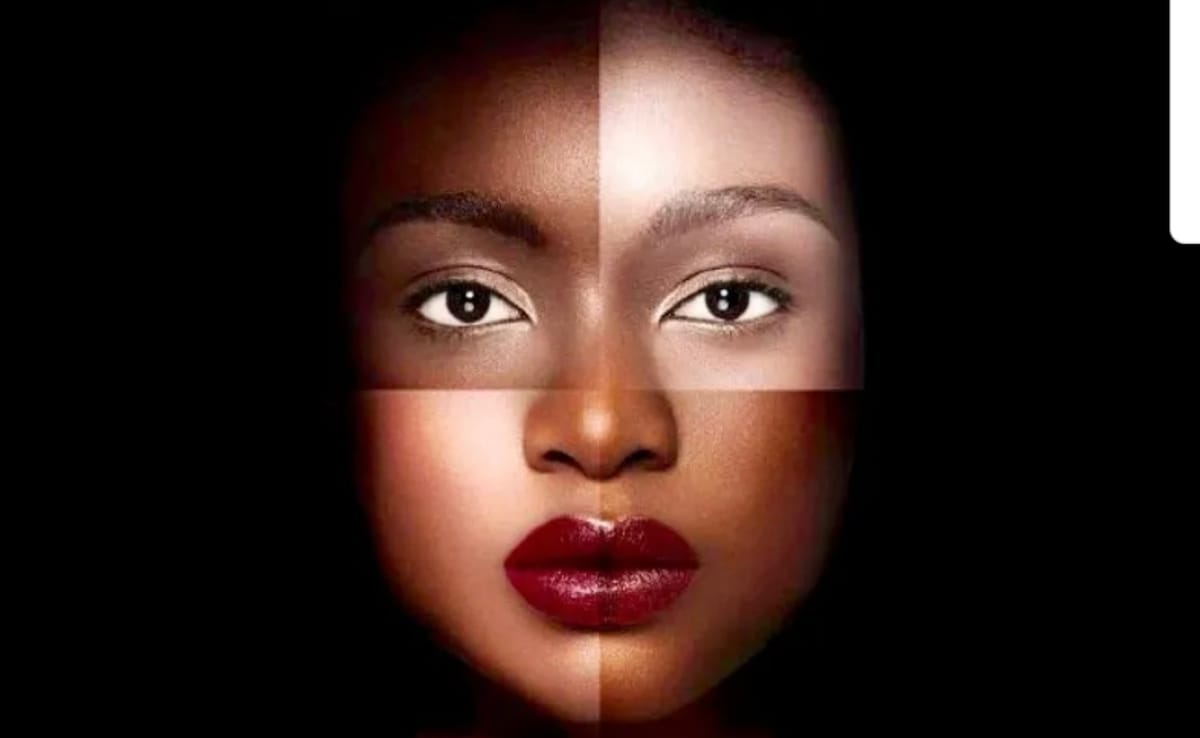Shades of Identity: Colorism for Light-Skinned Women

By Nathan Hay, BA Social Anthropology
Colourism and internalised racism. These two notions, referring to the discrimination of those with lighter skin within an ethnic group, have long plagued societies across the globe, often crossing paths with broader discussions on self-worth, identity, and societal influences. One perspective I find interesting is that of light-skinned women, as they are often perceived in Western society as having a favourable skin tone due to their proximity to whiteness. I sought out the opinions and stories of women who live this reality.
An interesting observation was made by one of the women I interviewed, stating, “I don’t think people like to hear that you can have a negative experience as a lighter-skinned person, and I think maybe that’s part of the problem.” She went on to explain, “We’re seen as the pinnacle of Black beauty, what people are aiming for.” While another light-skinned woman said, “We need to stop putting lighter-skinned people in angelic lights, just because they’re lighter.” Ultimately, they were well aware of Western society’s idolatry of whiteness and, therefore, understood that this inevitably gives them an unfair advantage in certain aspects of life. However, from the experiences of the women I interviewed, it was also clear that lighter-skinned women are very susceptible to discrimination too, and this perspective is one that we might not usually hear.
Leading on from this, another woman of Indian heritage described the experience of her younger, darker-skinned sister, who faced exclusion and marginalisation within the family. The comparisons and questions from extended family about their differing complexions made the bias “blindingly obvious.” “If the baby is fair-skinned, she is deemed beautiful,” she went on to say. The recognition of this privilege seems commonplace amongst light-skinned women and is, indeed, an unfair advantage in life that they come to be aware of as they grow up. I find this necessary to address in a world where people who are part of an ethnic minority community are often pitted against each other by Western society’s standards.
However, this is just one end of the spectrum, as questions of self-worth and identity come into play when observed in close comparison to an entirely different race. While growing up, one woman found herself caught between conflicting perceptions of her skin tone within her own community. From feeling marginalised and stereotyped by fellow black women due to her lighter skin, to grappling with comments from extended family members about her perceived darkness compared to other members of her family, her sense of identity was deeply influenced by external judgments. While not harbouring a desire to be white, she felt pressure to conform to a certain image of mixed-race beauty, one which included lighter skin, green eyes, and looser hair. This internalised pressure led her to straighten her curls and question her own appearance. However, in maturing, she embraced her natural features and confronted the damaging narratives that had shaped her perception of herself. This experience was similarly reflected in another woman I interviewed, who had almost the exact same experience. Together, it was evident that the lasting impact of societal expectations on self-esteem from communities and the importance of intentional self-appreciation in overcoming internalised racism could not be clearer for light-skinned women.
“We have to dig down and dismantle what we’ve been told our whole lives”
Many light-skinned women come to face these challenges, with them being a product of Western society’s beauty standards. White women have always been perceived as ‘the ideal’, as is commonly reflected in the media and touched on by all whom I interviewed. Therefore, despite the perception that some may have of lighter-skinned women, they still face the issue of looking different. This sense of exclusion can seep its way into ethnic communities, with certain members enforcing others’ outsider status by embracing this Westernised perception of beauty. One woman described how she felt pressure to conform to beauty standards based on society’s perception of light-skinned women, altering the way she dressed entirely to appear “the way Black girls dress typically in the UK’,” fearing deviation from the norm as she “felt that people would double down on calling me whitewashed.” Another woman made the point that “We have to dig down and dismantle what we’ve been told our whole lives and about how we behave.” She also stated “It’s a lot harder to tackle in our communities when you hear it so much from the outside,” making clear that society’s racial influence has become ingrained into the fabric of our nation.
Being a woman of colour in today’s society bears a series of mental challenges for them in different ways. The need to overcome these challenges is a struggle that oftentimes goes unheard, and ultimately, the need to steer away from pitting coloured people against each other could not be more evident. From self-worth and self-esteem to struggles with identity, it stands to reason that at the end of the day, light-skinned women have a colourist struggle, and we need to hear them out.
Photo caption: Colorism (photo credit: https://medium.com/illumination-curated/why-colourism-also-needs-to-be-solved-not-just-racism-2b28627b1e02)




